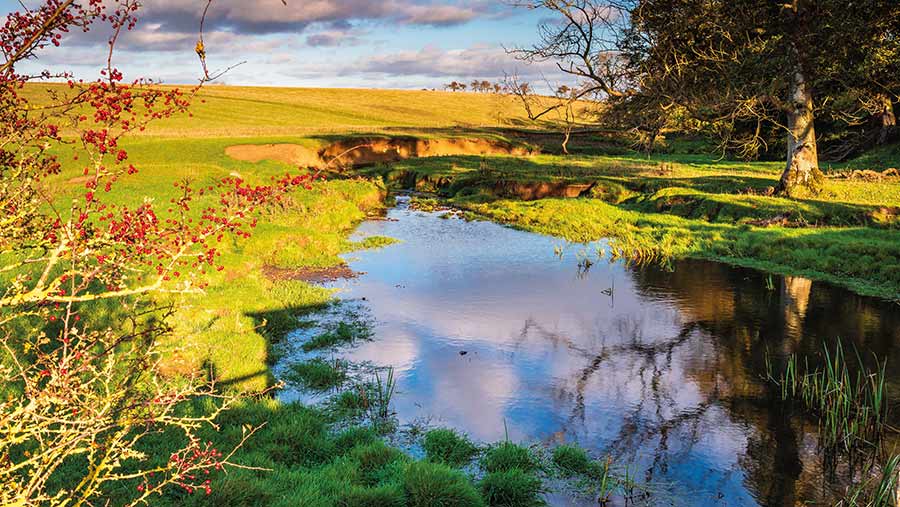Farmers to lose out as housebuilders ‘let off’ on pollution
 © drhphoto/Adobe Stock
© drhphoto/Adobe Stock Farmers in England are set to lose access to a fledgling private nutrient offset market, potentially worth millions of pounds to participants, after the government scrapped water pollution restrictions for new housing developments.
Legacy EU rules obliging developers to show how they would prevent or offset pollution for any new homes they intend to build will be junked, following an announcement from the Department for Levelling Up, Housing and Communities.
See also: Statutory nutrient mitigation credits – opportunities for farmers
Instead, ministers have set out plans to double investment in Natural England’s public Nutrient Mitigation Scheme to £280m, claiming this will be sufficient to offset the amount of nutrient discharge from up to 100,000 homes between now and 2030.
The government also pointed to increased investment in slurry storage and management, with two further rounds of slurry infrastructure grants worth £147m opening for applications in autumn 2023 and 2024, and £21m for two more rounds of slurry management equipment.
Another £25m will be invested in the management of plant and soil nutrients via the Farming Innovation Programme and “payment premiums” will be introduced to the Environmental Land Management (ELM) scheme from 2024.
But Rob Shepherd, who chairs the Environmental Farmers Group co-operative that has spent two years creating a nutrient offset market, told Farmers Weekly he was “very disappointed” that emphasis had shifted from the housebuilding industry to agriculture.
“Once again, the government is using farming as a scapegoat for the nutrients going into the rivers, where the true culprits are the house developers,” he said.
“We’re allowed to apply 250kg of nitrate per hectare, but that isn’t just going through the ground into the river, it’s being used to grow crops. There may be a little bit of surplus nitrate, but there’s a lot of management we can do to mitigate even that last 30kg.
“Every house development generates 62.5kg of nitrate per hectare and all that stuff is going straight into the river.
“Farming had a solution and both parties – the building industry and the farming industry – recognised we were moving in the right direction, but now they’ve been let off the hook.”
Holly Story, head of the environmental and sustainability department at GSC Grays, urged farmers to use grants currently on offer to “future-proof” their businesses.
“There will definitely be more focus on reducing nutrient pollution from agriculture,” she said.
“They’ve already increased the funding and the inspections around Farming Rules for Water and that shows the direction of travel. It will increase over the next few years.”
A further pledge to consult this year on modernising fertiliser product standards to drive increased use of organic and recycled nutrients was given a cautious welcome by industry.
Jo Gilbertson, head of fertiliser at the Agricultural Industries Confederation, said: “We’ve been promised this every summer since 2016. I’m not surprised they’re still promising it, but I don’t see it coming out immediately.”
He claimed new legislation in this area was necessary, but warned against “slavishly” following EU regulations, pointing out they had effectively banned certain commonly used products such as ammonium sulphate and agricultural salt.
A government spokesperson said: “The government is clear that developers should continue to play their part in tackling nutrient pollution, which is why we are working with the Home Builders Federation to structure appropriate and fair contributions – which we both agree are needed.
“And we will continue to hold water companies to account to deliver new infrastructure and more investment to clean up our waterways.
“Many farmers are already working hard to prevent nutrient pollution and yesterday’s announcement saw £200m made available for them to continue to do this through various schemes.”
